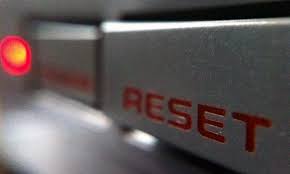Have you ever made a mistake? Of course you have – None of us is immune to this experience! But how does making a mistake ultimately impact your performance? In other words, once the error is made, how do you respond, and recover, from your mistake?
For athletes this can be a difficult issue because when an athlete makes a mistake during competition it is often the beginning of the end! A bad play begets another bad play, and so on, and so on… I see evidence of this every Sunday during football season. Off-balance and hurried by the pass rush, a quarterback makes a poor throw. The outcome? An interception, resulting in a pick six on his first drive. On the next drive – another interception. From that point on, one bad thing after another seems to happen. The quarterback can’t recover from the negative event, the offense is frazzled, and the rest of the game is a disaster.
Time – or the lack thereof, is another challenge for athletes, compounding the pressure after a bad play, bad call or some other negative event. Time is finite during competition…the clock keeps on ticking, and the longer it takes for an athlete to recover from a bad play, the more likely it is to have a negative effect on their performance.
But not every athlete is doomed to repeated mistakes. There are some athletes who appear to recover immediately, minimizing the effect of their mistake. How do they do it? The answer lies in the way they respond to the negative event. The most successful competitors are those that have developed and practiced mental strategies to overcome poor performance, and to get back on track. I call these strategies RESET ROUTINES. All top performers have them, and so can you.
The purpose of a RESET ROUTINE is to help the athlete focus on actions that are happening in the present, instead of the past or future. Focusing on past events – such as endlessly and pointlessly reviewing and replaying the dropped pass or missed free throw – is called thought regression. If the event has already happened then nothing can be done to change it – so why focus attention on it? The similar phenomenon of thought progression – focusing on what might happen in the future – can be equally detrimental to performance. The athlete’s mind is occupied with thoughts about the next play, or the outcome if they make another error. In either case the athlete’s attention is not where it should be: completely in the present! High-level performance requires the ability to focus on the current moment – the only thing within an athlete’s control.
A good RESET ROUTINE should be quick, and include 1 – 3 elements that when practiced allow you to direct your attention fully to the present moment. The 3 elements in the RESET ROUTINE should be verbal, visual, and physical. For example, a tennis player who double faults and loses the service game may use a reset routine that includes the following cues – “come on get it back” (verbal); adjust visor (physical); and focus on strings on tennis racquet (visual). Another example: a gymnast falls off the balance beam which leads to a deduction in points. To focus on the error made, and points lost, is likely to lead to more errors and an even lower score. So she takes a deep breath (physical), and repeats “I can do this” (verbal) and focuses on a specific spot on the beam (visual) so that when she mounts the beam her attention is in the present and she can finish strong. The RESET ROUTINE is like a remote control – it changes the channel from past or future to present.
Finally, a RESET ROUTINE requires practice, if you plan to rely on it during competition. So practice your RESET ROUTINE when you make mistakes during your training sessions! The more you do it, the more you’ll do it when you need to! The next time something goes wrong, remember that one bad play or bad call doesn’t have to ruin your performance. Use your RESET ROUTINE to gain control of your attention, recover quickly, and make plays that count… not count against you!
